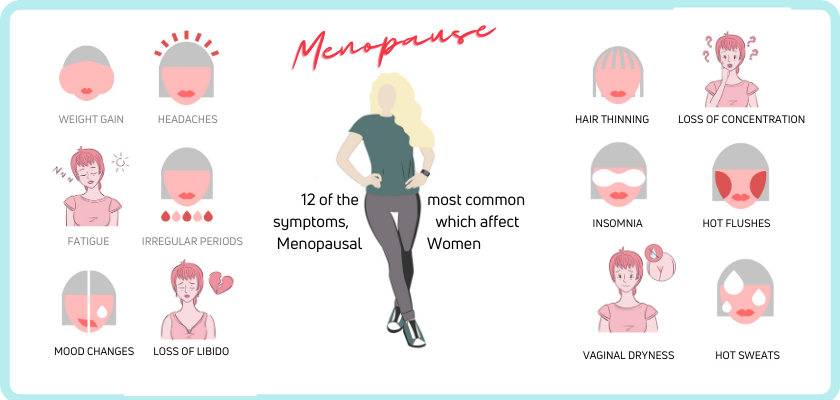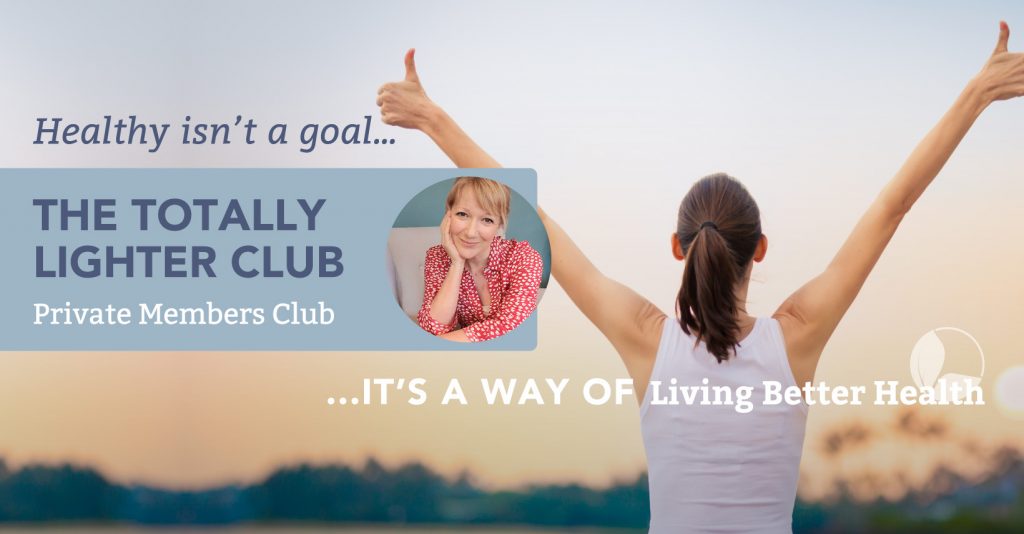18th October is world Menopause Day and this day is to raise awareness of Menopause and the support options available.
The menopause is the exact point in your life when you have stopped having periods for a total of 12 months. This usually happens between the ages of 45 and 55. The average age in the UK is 51. This is caused by changes in your hormone levels. When your body is at its most fertile, oestrogen and progesterone keep your periods and production of eggs regular, however, as you get older, you can’t store as many eggs in your ovaries because your body is producing less and less oestrogen. This gradual process is called perimenopause.
When you move into Menopause there are some 34 Menopausal Symptoms ?? Most women experience many of these and the most common menopausal symptoms are listed below.
If you have not had a period for 12 months, you are post-menopausal and your symptoms might gradually decrease with time. Postmenopause vary from woman to woman. Some women feel a renewal of energy, while others continue to have menopausal symptoms like hot flushes and night sweats. It’s normal to feel changes in the body as a result of oestrogen levels dropping.

Menopause can be an extremely difficult time for women because these symptoms tend to creep up on you and it is not until you feel completely overwhelmed by their impact that you realise what the cause is. Once this revelation has taken place, there is not much relief, apart from the fact that you realise that you are not going completely mad !! There is very little your GP can do as their normal route of action is either Anti-depressants or HRT, neither are brilliant solutions as there is a huge link with HRT and breast cancer(1) and most women are depressed because of their symptoms, not actually depressed.
So what can you do to alleviate some of your symptoms ??
One of the main symptoms that I see in my clinic is Anxiety with or without palpitations alongside Depression. These emotion issues take women to a very sudden and deep emotional state, which seems to come out of nowhere and without any real cause, as the smallest thing can set them off. These deep emotional states come along with feelings of being completely overwhelmed and thoughts that life have become too hard from these massive oestrogen drops, some feel that they do not want to continue with their life because it all feels so desperate.
All of the hormones work as a team, and there are many different things that you can do to rebalance your system;
Eat Healthy Fats
Avoid any food that has a ‘low-fat’ label. The fat is generally replaced with sugar and other artificial additives that often promote weight gain!
Fat is a really important part of our diet and is, in fact, crucial to optimal health. It’s an important food both in hormone balance and in normalizing blood sugars. In fact, healthy fats can lead to weight loss and can be anti-inflammatory. Ideally, you want to focus on omega 3 fats which are found in salmon, sardines, mackerel and trout. Other healthy fats are found in abundance in nuts particularly walnuts and almonds, seeds such as chia seeds, free range eggs and avocados.
Stay Hydrated
Try and drink around 1.5 litres of water per day. But you also have to think about what is dehydrating you, so look at your salt and sugar content and not forgetting caffeine which also dehydrates you. Also drinking water with fresh lemon juice after a meal may help slow the release of sugar from carbohydrates. But if you don’t fancy that you can take herbal teas and that counts as part of your water intake.
Eat More Veggies
An easy rule of thumb is that at least half of your plate should always be covered in vegetables. Ideally, this will be a combination of green leafy vegetables and a variety of healthy red, orange and other deep coloured vegetables that are hugely nutritious. Think of them as powerhouses that are full of healing qualities. When you start to prioritise vegetables you will be surprised how you can fit them into every meal.
Start your day with a green smoothie, a fantastic habit to get into.
Stress
Cortisol is our stress hormone and it can raise our cortisol levels. This can keep excess weight around your stomach area. Mindfulness, meditation, journaling, spending time in nature, doing things you love are just a few of the things that you can do to help minimise your stress.
Sleep
Sleep underpins our health and here is firm scientific evidence that poor sleep causes insulin resistance. Poor sleep also impedes clear thinking which in turn inhibits healthy food choices or the will to exercise. Making sure you get enough sleep is vital during this time and this can always be difficult if you are also suffering from night sweats and night waking; so you can see where this becomes a vicious cycle. If you can get to bed really early some nights or have a lie in or an afternoon nap on the weekends to try and catch up will help. Also making sure that you have a good night time ritual of shutting off all technology and TV an hour before you go to be, limiting caffeinated drinks, especially after midday and keeping your blood sugars balanced helps with the hormonal surges.
Homeopathy
I regularly recommend Homeopathy to help balance out these emotional feelings . Homeopathy was invented in the late 18th century. It’s based on the idea “like cures like.” In other words, if something causes an illness, it might also cure that same illness. Some of the most common homeopathic remedies I use are:
Cimicifuga (also known as Black Cohosh used in its herbal state) (2)
where there is depression with low spirits and exhaustion. Gloom as if there is a black cloud over everything & thinks she is going crazy. They are nervous, fidgety and excitable and oversensitive.
Sepia
Mentally and physically worn-out. Poor memory with anxiety over little things. They constantly worry and cry easily.
My ‘Totally Lighter Club’ is a membership which focuses on rebalancing the symptoms of menopause, heavily focusing on weight loss. If you would like to know more information, click on the image below.
References
(1) https://www.nhs.uk/news/cancer/study-suggests-hrt-carries-higher-risk-breast-cancer-thought/
(2) https://www.ncbi.nlm.nih.gov/pmc/articles/PMC6599854/


